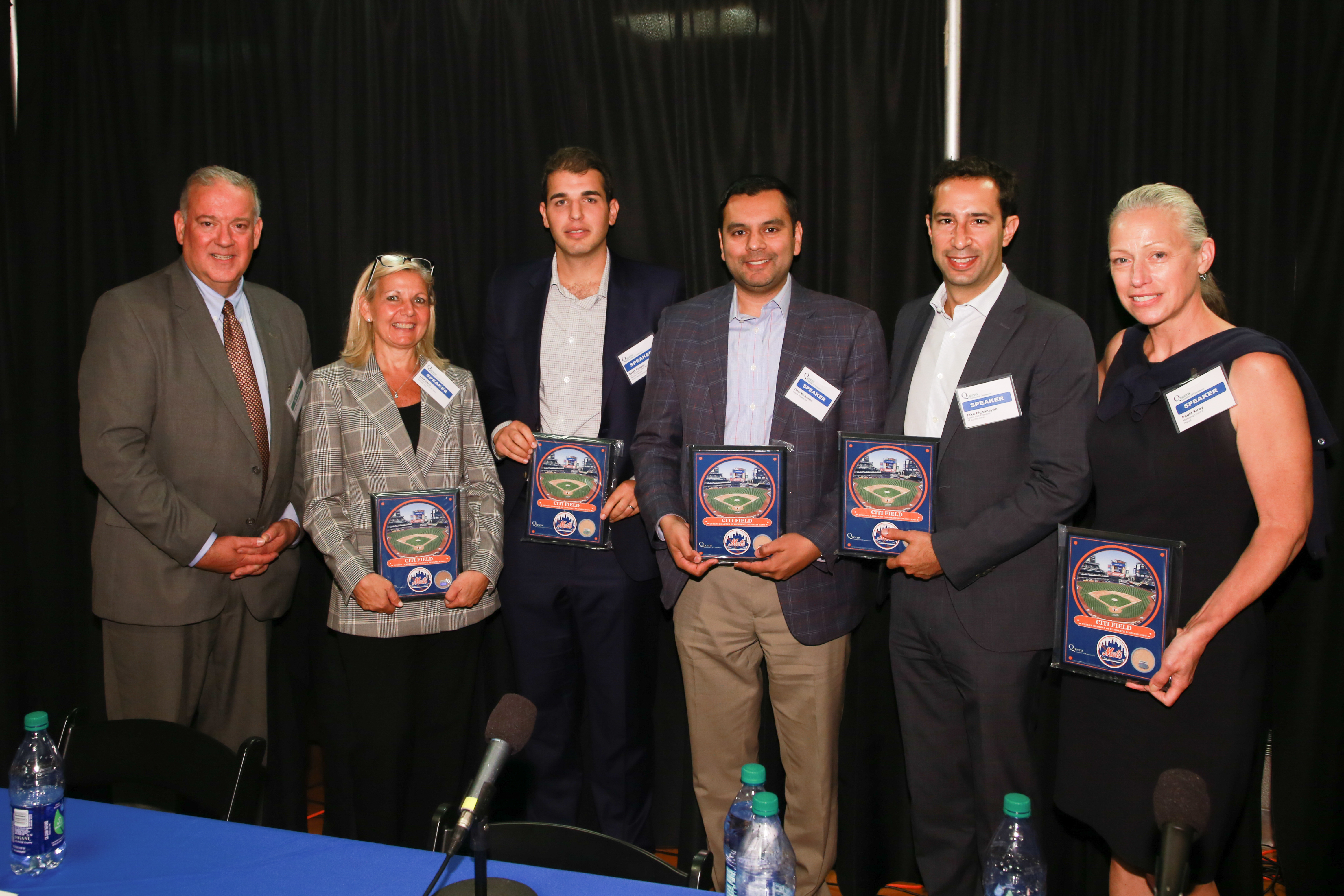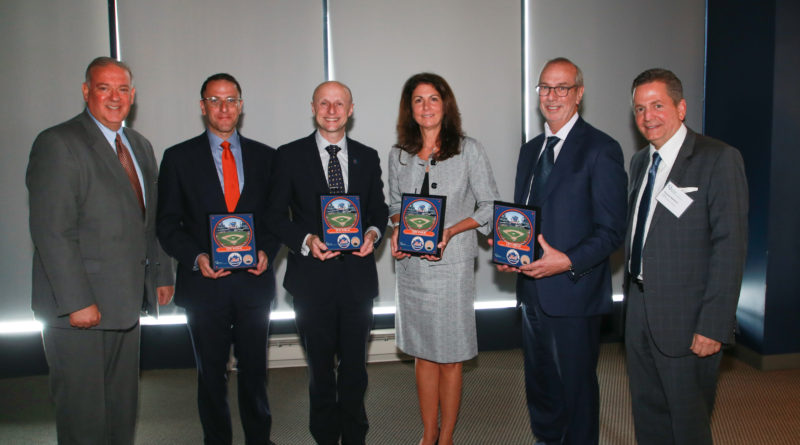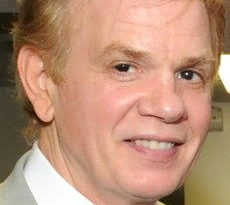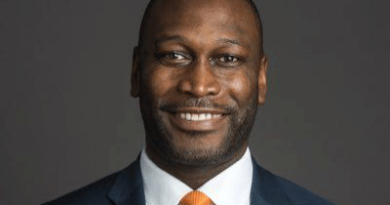Transportation panel talks transit challenges at expo
But modernization overhaul needs sustainable funding. To have new tracks, tunnels, trains, power systems, signals, stations and elevators, the MTA must have a dedicated source of money.
Byford said the MTA is holding off on announcing a figure until they’re certain it’s right, but expect to announce the number over the summer. Where they will get the money is still to be determined, but they will look at ideas like congestion pricing, an influx of private capital and public-private partnerships.
The panel also focused on the two airports in Queens, and their respective ongoing transformation plans. At John F. Kennedy International Airport, Seth Pinsky’s RXR Realty is managing the expansion of JetBlue’s terminal expansion.
Pinsky, executive vice president at RXR and a former president of the Economic Development Corporation in the Bloomberg administration, said in many ways, airports today are facing the same challenges as subways. There is ever-rising usage but relatively fixed infrastructure.
“We haven’t really increased flights by the same percentages that the number of passengers have increased,” he said. “We only have so many landing slots, so many runway slots, so many gates.’
Another challenge facing the airport is its configuration, which Pinsky said comes “from a different age.” There are a large number of old and crowded terminals, connected by the AirTrain, that makes transferring inconvenient.
RXR’s project at JFK is to expand JetBlue’s Terminal 5 by building and connecting to a new terminal. The $3 billion private investment allows for integration of these previously unconnected terminals.
“It will help us accommodate the growth we desperately need,” Pinsky said. “If we want to stay competitive on a global stage, we have to make sure people can reach New York and go to other cities, do business and bring their tourism dollars.”
Though RXR isn’t behind this next project, developers are also building the first hotel at JFK, at the site of the historic TWA terminal.
“It’s about creating amenities at the airport that 21st century passengers expect,” he said. “High-quality hotels on the site of the airport, so it’s easy if you have an early flight or you need to have business meetings. That doesn’t exist today at JFK.”
LaGuardia Airport is also undergoing a multi-billion dollar change. Lysa Scully, the general manager of the airport, detailed the “unprecedented investment” for new facilities.
Two years ago, the Port Authority signed an agreement with LaGuardia Gateway Partners, a $4 billion deal, to work on the first phase of the rebuild. Last year, they signed another $4 billion agreement with Delta.
Scully said the projects are delivering $4 million a day in construction, and they have hired more than 1,200 construction workers to execute the rebuild, all while commiting to not reducing flight operations.
In the last six months, LaGuardia has opened up a 3,100-space parking garage and put in place roadway changes that will allow for a new entrance into the Grand Central Parkway westbound from the Delta complex.
Eventually, they will create a new bridge network that will allow customers to go directly into the Delta part of the airport without entering Terminal B at all. In the fall, LaGuardia will open its new Concourse B, with another concourse expected to debut next year.
“Each month, each quarter, there is very visible progress being made,” Scully said. “We know that this borough, this state, requires to be the front door to the rest of the world. We really need to invest in it.”
The final part of the panel focused on the future of automobiles. Mark Schienberg, president of the Greater New York Auto Dealers Association, said the most pressing issue for cars is emerging technology, and how future generations will be trained to handle it.
Some of the new technologies that are being integrated today are autonomous technology, electric cars and self-driving cars.
Despite growing investment in public transit, Schienberg said people “by far” still like owning a vehicle. The tristate area remains the largest market for car sales, including $41 billion in sales last year.
“People want the freedom of mobility, but they want to buy the right products and safe products,” he said. “It’s an exciting time in the auto industry for sure.”
OTHER EXPO PANELS
In addition to the breakfast panel on transit issues facing Queens, the expo also included an Energy and Sustainability Panel in the morning moderated by Marshall Haimson of E-Capital Insurance Services and featuring Terry McGee of Con Edison, Dan Audette of Energy Tax Savers, Mike Balis of Sunation Solar Systems, Benjamin Pickard of National Grid Ventures, and Ted Rodormer of East Coast Energy.
An afternoon Restaurant and Hospitality Panel was featured Mark Boccia of Bourbon Street, Vijay Dandapani of the Hotel Association of New York City, Demetrios Kafchitsas of Pan Gregorian Enterprises of Metro New York, Erik Palmer of MCR Development. It was moderated by Mickey King, the owner of Antun’s and director of the New York State Restaurant Association. It was moderated by
Between those two was a third panel focused on Real Estate (pictured).





